Titles In This Series:
- Meltdown Part 1: Men Who Crashed the World.
- Meltdown Part 2: A Global Tsunami.
- Meltdown Part 3: Paying the Price.
- Meltdown Part 4: After the Fall.
Meltdown Part 1: Men Who Crashed the World.
In the first episode we hear from four men who are responsible for crashing the global economy. From a billionaire mortgage seller who managed to pull the wool over millions of peoples eyes, a high-rolling banker with a fatal weakness, a ferocious Wall Street predator and the power behind the throne. We also take a look at the complex banking system with few safeguards and the easy lending in the U.S. housing market which helped precipitate the September 2008 meltdown. Part of the series Meltdown: The Secret History of the Global Financial Collapse.
Greed and recklessness by the titans of Wall Street precipitate the largest financial crash since the Great Depression. US Treasury Secretary Hank Paulson, a former Wall Street banker, attempts to avert further disaster. In the first episode, we hear from four men responsible for crashing the global economy, including a billionaire mortgage seller, a high-rolling banker, a Wall Street predator, and a power broker. We also examine the complex banking system with few safeguards and the easy lending in the U.S. housing market that helped trigger the September 2008 meltdown. Part of the series Meltdown: The Secret History of the Global Financial Collapse.
Men Who Crashed the World: Transcription
Meltdown Part 1: Men Who Crashed the World.
"Meltdown" is a four-part investigation of the 2008 financial crisis, which brought the largest bankruptcies in world history and pushed over 30 million people into unemployment, causing many countries to the edge of insolvency. Only now are the hard questions being asked and the key players being held accountable. In this hour, the story of the men who crashed the world, including the billionaire mortgage seller who fooled millions, the high-rolling banker with a fatal weakness, the ferocious Wall Street predator, and the power behind the throne, the de facto president. Meltdown reveals the secret history of the global financial collapse.
The crash was triggered by easy lending in the US housing market in an era of reduced bank regulation and low interest rates. There was an astonishing building boom across the United States, and banks in California decided that virtually anyone could qualify for a home loan. Subprime loans were made to people who could ill afford to pay back the money, especially if house prices ever went down. Many of the loans were extremely complex, and the terms were hidden from borrowers. It was no accident that the most complex mortgages were sold to the least sophisticated buyers, especially in poor and minority neighborhoods.
Banks and mortgage companies indulged in fraudulent practices to pump up their mortgage business. Angelo Mozilo was the undisputed king of the US subprime market, making about a hundred million dollars a year at the height of the subprime real estate boom. Despite all the evidence, the Federal Reserve chose not to regulate subprime lending, and Greenspan, its chairman, did not stop the practice.
The consequences of this financial crisis have been grim, with millions of Americans losing their homes and their jobs, and trillions of dollars of wealth lost. The Financial Crisis Inquiry Commission was launched to try to get to the bottom of what really caused the meltdown, and its chairman, former California treasurer Phil Angelides, has taken sworn testimony from a parade of government and bank officials. The job of the Commission is to try to rationally explain to people what happened and how it all went so wrong.
Flash photography was introduced to heighten the spectacle of the Pecora Commission, an official investigation launched by the US Congress after the Wall Street crash of 1929, which led to the Great Depression. Business Titans, including JP Morgan, were called to account. In 2010, the same model was followed for a new investigation of a new financial collapse.
In conclusion, "Meltdown" is a powerful documentary that reveals the secret history of the global financial collapse, caused by easy lending in the US housing market, reduced bank regulation, and fraudulent practices by banks and mortgage companies. The consequences of the 2008 financial crisis have been grim, with millions of Americans losing their homes and their jobs, and trillions of dollars of wealth lost. The job of the Financial Crisis Inquiry Commission is to try to rationally explain to people what happened and how it all went so wrong.
Here in the years before the financial meltdown, Garant Anderson arrived in the city as a young trader. In 1996, he had been a hippy selling trinkets on the beaches of India until his older brother found him a job in a London brokerage. Anderson had no idea what the city was all about, and he was surprised to learn that he could make £300-400,000 within four or five years. So, he decided to give it a shot.
Anderson admits that he didn't know anything about finance when he started out. But in the city, all you had to do was present yourself strongly and pretend you believed in what you were doing. It was all about schmoozing clients, taking them to strip joints, bars, and spending company money to give them a good time. The atmosphere in Britain was wild, and it was brought about by Chancellor of the Exchequer Gordon Brown, who was easing financial regulation in the country.
Brown's new approach was called "light touch." He wanted to make the City of London the world's greatest financial center by giving the finance ears and bankers a free hand in the marketplace. This deregulation came about because of a competition between New York and London to become the financial capital of the world. Paul Martin, Canada's finance minister at the time, says that the race to become number one was crucial. But how do you attract the financial industry? The most logical way is what they call "regulatory arbitrage," which means gutting the regulatory system and inviting more people to come.
The prevailing culture in the city was that the markets always went up, and there was an easy way to make money. Drinking champagne and being a fat cat analyst was the norm. It was a joyous time, and everywhere you looked, there were great new offices being put up, statues being put in the forecourt, and people building great monuments to themselves in terms of the buildings they occupied and the way they behaved.
By 2004, Garant Anderson was making a salary of $300,000 a year, plus an annual bonus of $700,000. He was invited onto business television shows as an analyst. The whole game was about increasing your bonus. You didn't go into the city to do the world some good; you went there to make money as quickly as possible. And if that meant lying, cheating, and stealing, that's what you did. Regulators and politicians were just deemed to be idiots. It was all about thriving with light touch regulation, and that's exactly what Gordon Brown was encouraging.
If one country could be the microcosm of everything that went wrong in the years before the meltdown, Iceland is it. Iceland was known for its natural beauty, but it was never known for banking and high finance until a few years ago. Iceland was transformed through the ideas of one man, longtime Prime Minister David Autzen, who decided to remake the country according to his free market principles.
Autzen wanted to privatize almost everything touched by government. Iceland's number one resource industry has always been fishing, and Autzen parceled up the country's fishing grounds and passed them off to big ship owners. This was the beginning of what came later. In 2003, Autzen made his most controversial privatization move. Some of the biggest banks in the country were auctioned off in suspicious circumstances and ended up in the hands of some of Autzen's closest friends. These guys didn't know the first thing about banking, but they embarked on an orgy of dangerous financial practices. They sold securities back and forth to each other at vast markups that falsely inflated their value. All Icelanders were encouraged to buy a house, and the central bank.
BBC News has learned that within hours of a BBC bulletin airing about Northern Rock customers withdrawing their money, the bank was worried that customers would continue to line up to withdraw their money. While some customers were unsure about whether or not to withdraw their funds, most people in the Western world had never seen a bank run before with their own eyes and found it almost impossible to imagine.
The British government was very slow to react to the panic, which was damaging to the reputation of British banking. Adam Applegarth, the CEO of Northern Rock, was hauled before a British parliamentary investigation into the failure of his bank, but he characteristically deflected blame by stating that the unforeseen global freezing of the liquid was the cause of the crisis.
The Northern Rock crisis in Britain should have been taken as a serious warning on Wall Street, but it was not. The sense of interconnectedness was not realized until the very last moment, as US Treasury Secretary Hank Paulson was constantly reassuring his international colleagues that everything was fine with the US economy and that only mild tinkering was required with the global financial system. However, in private, French Finance Minister Christine Lagarde advised her friend that he was being very foolish.
The first major US casualty of the financial crisis came with the dramatic fall of Bear Stearns, the fifth-largest investment bank in America, and its CEO, Jimmy Cayne. Cayne had a reputation for being a flashy risk-taker in both his business and personal life. In 2007, he was worth over 1 billion dollars and wanted everyone to know it. However, he had one troubling habit that would come back to haunt him: he used to brag about smoking pot.
Bear Stearns' risky bets on mortgage-backed securities began to go wrong in the fall of 2007, causing the firm to hemorrhage money. In November, The Wall Street Journal carried a front-page story that portrayed Cayne as an absentee landlord who was always out of touch at either golf games or bridge tournaments while his firm was in crisis. To top it off, the journal publicly revealed his taste for marijuana.
Cayne made a lot of enemies on Wall Street, which was a competitive, Darwinian place. If his competitors smelled "chum in the water," the sharks would circle. In January 2008, Cayne was forced out of the CEO position at Bear Stearns and became an unpaid chairman of the board, but the firm continued its downward slide. It had more exposure to toxic financial products than any other Wall Street firm, and Cayne had left a ticking time bomb behind him.
Rumors swept the financial world in March 2008 that Bear Stearns had liquidity problems and trouble raising cash. When Hank Paulson heard the rumors, he told his Washington staff that this would be over within days. He knew that Bear's clients would immediately pull their cash out of the bank, causing it to collapse. On Sunday, March 16th, Bear Stearns was taken over by rival JP Morgan in a deal bankrolled by the US government. Just one year earlier, Bear's share price had been a lofty 170 dollars.
Meltdown Part 2: A Global Tsunami.
In this second episode of the series, we delve into the impact of the financial tsunami that struck the world, caused by the actions of a renegade executive. This individual nearly brought down the entire financial system, and as a result, the U.S. Treasury Secretary, Hank Paulson, was forced to engineer an extraordinary bailout to save the day.
Throughout the episode, we witness how behind closed doors, world leaders were at each other's throats, and how Iceland, a former ally, was betrayed. This betrayal led to the country being stabbed in the back, and it suffered greatly as a result.
As the investigation continues, we see how greed and recklessness drove the world to the brink of financial ruin. The effects of the economic downturn were widespread, and included unemployment, foreclosure, homelessness, protests, and riots. To combat these issues, bailouts of great magnitude were required, and in some cases, countries turned on each other.
Overall, the episode provides a detailed look into the secret history of the global financial collapse, and is part of the larger series, Meltdown.
A Global Tsunami: Transcription
Meltdown Part 2: A Global Tsunami.
In this video, "Meltdown: Part Two," the narrator discusses the financial crisis of 2008 and the aftermath of the failure of Lehman Brothers. The video begins with a description of the chaos that ensued after the collapse of Lehman Brothers, which was the largest bankruptcy in U.S. history. The failure sent financial markets around the world into a tailspin, with the New York Stock Exchange having its biggest one-day drop since the 9/11 attack. Markets from London and Paris to Shanghai fell in lockstep, and Russia suspended all trading.
President George W. Bush stepped out of the Oval Office the next morning to reassure the public. He convened an emergency meeting in the White House, during which U.S. Treasury Secretary Hank Paulson warned that the United States was on the edge of a total financial meltdown. He told the president that if they didn't act boldly, they could be in a depression deeper than the Great Depression. Paulson had also warned that this was the financial equivalent of war and that they would need wartime powers.
The video then delves into Paulson's role in the crisis and his key decision in September 2008 to allow Lehman Brothers to fail. This decision had repercussions around the world, with millions of people losing their life savings and pension plans being decimated. French finance minister Christine Lagarde, a close friend of Paulson, publicly called his Lehman decision "horrendous."
The failure of Lehman Brothers also had an immediate impact in London, where the Lehman Brothers UK office had to instantly shut down operations. A lot of Lehman's trading was done through its subsidiary in London, and every Friday, it would send all its cash back to New York. So on the Monday morning in London, there was no cash, and the holding company had gone into Chapter 11, with not a penny to pay the staff. The uncertainty was huge and very damaging.
The video ends with a description of the rising panic and gut-wrenching uncertainty that followed the failure of Lehman Brothers. Many governments blamed the United States, and trade credit suddenly became impossible to get. This led to a dramatic downturn in world trade.
Hey there, it's Matt from RGG EDU, and in this tutorial, we're gonna take a look at creating a cinematic portrait. We're gonna take a portrait from start to finish, and we're gonna break down everything that we do so that you can understand how to do it yourself.
Alright, so first things first, let's talk about the gear that we're using. We're shooting on a Sony A7R III, and we're using a 85mm 1.4 G Master lens. This is a fantastic lens for portraits, it gives you that really nice shallow depth of field, and it's also super sharp.
Now, as far as lighting goes, we're using a Profoto D2 with a 3-foot octabox. We're gonna be shooting in the studio, so we have complete control over the lighting.
So let's go ahead and take our first shot. I'm gonna have our model, Ashley, step in. Ashley, go ahead and stand right here. Alright, perfect.
Now, one thing that I like to do when I'm shooting portraits is to have the model look slightly away from the camera. It gives the photo a little bit more depth, and it also helps to avoid any issues with the model's eyes being too close together or too far apart.
So I'm gonna have Ashley look over this way, and I'm gonna have her bring her chin up just a little bit. Perfect. Now I'm gonna move in a little bit closer.
Alright, so now that we've got our first shot, let's take a look at it. As you can see, we've got a really nice shallow depth of field, and Ashley looks great.
Now, let's try something a little bit different. Ashley, go ahead and put your hands on your hips. Perfect. Now, I'm gonna have you look off this way again, and bring your chin up just a little bit.
Alright, now that we've got that shot, let's take a look at it. As you can see, we've got a completely different look from the first shot. This time, Ashley looks a little bit more confident and a little bit more powerful.
Alright, now let's take a look at how we're gonna edit these photos. We're gonna be using Lightroom and Photoshop, so let's go ahead and import our photos into Lightroom.
Alright, so now that we've got our photos in Lightroom, let's go ahead and do some basic adjustments. I'm gonna go ahead and crop this photo a little bit. I think we can get rid of some of the empty space on the right side.
Now, let's go ahead and adjust our exposure, highlights, shadows, and whites. I like to bring up the shadows a little bit to give the photo a little bit more contrast.
Now that we've got our basic adjustments done, let's go ahead and take this photo into Photoshop. The first thing we're gonna do is clean up any blemishes or imperfections on Ashley's skin.
Now that we've got Ashley looking her best, let's go ahead and do some creative color grading. I'm gonna add a gradient map adjustment layer, and I'm gonna play around with the colors until we get something that we like.
Alright, now that we've got our color grading done, let's go ahead and do some dodging and burning. I like to add some contrast to the photo by dodging the highlights and burning.
Meltdown Part 3: Paying the Price.
In the third episode of Meltdown: The Secret History of the Global Financial Collapse, we witness victims of the crash fighting back. The program showcases how the loss of 30 million jobs led to demonstrations across many cities, often escalating into violent protests. However, governments and corporations easily weathered these protests. In France, union members expressed their anger by kidnapping their bosses. In Iceland, a government fell due to protester pressure. Meanwhile, Canadian autoworkers occupied their plant after being ripped off.
Paying the Price: Transcription
Meltdown Part 3: Paying the Price.
"Meltdown" is a documentary that investigates the greed and recklessness that led to the financial collapse of 2008. The aftermath of the crash resulted in the loss of an estimated 30 million jobs, which led to violent protests and demonstrations around the world.
In France, the struggle went much further, leaving a lasting mark on the country. Workers at the Continental Tire Company protested when the factory announced it would be forced to close, cutting 1,120 jobs, despite still showing a profit. The workers labeled the factory boss, New E4Z, a thief and a liar. When he addressed them, an egg was thrown at him, and he withdrew from the situation.
The worker uprising spread across the country, becoming increasingly threatening. The Caterpillar heavy equipment company announced it would be cutting 20,000 jobs worldwide, over 700 of which would be in France. Workers surrounded the plant, and negotiations led nowhere. Union leader PRP Kureta instructed workers to surround the management offices and hold the team captive. The situation became increasingly dangerous, but the police did not immediately intervene. The workers did not leave the bosses in peace, and the incident became widely known as the "boss-napping" incident. President Nicolas Sarkozy denounced the kidnappers, but French finance minister Christine Lagarde was critical of Caterpillar management, which she thought exacerbated the situation.
In exchange for the Union allowing the bosses to leave, Caterpillar management agreed to resume negotiations. The bosses who were kidnapped decided to keep silent about their ordeal, but many bosses in France realized they could end up in a similar predicament.
Marcus Careyou, the human resources manager for a US car parts company called Molex, was sent to close a factory in Vilmer near Toulouse that had operated there for many years. The workers were furious, and their anger focused on Careyou, who received nasty emails and threats.
According to Bill Diala, the area near the Sacramento River is dangerous, as the river can overflow its banks and flood the area. The homeless have tried to camp in safer places in Sacramento, but were chased away by municipal officials who ordered the big tent cities to be dispersed. They did everything in their power to drive the homeless out of their jurisdiction, with many being arrested or fined.
The Harrelson family of Sacramento has been homeless for months after they sold their house and tried to move in with relatives, but it didn't work out. They are now on bicycles because they cannot afford a car, which is ironic because Francis is a retired auto worker. The family has spent some nights camping beside the Sacramento River, which Angelina did not enjoy because she is a "girly girl" who does not like bugs, dirt, or the thought of being around critters like skunks or raccoons.
The Harrelson's eight-year-old son Joseph attends the Mustard Seed School in Sacramento, a school specially designed for homeless children. It is privately funded by a charity called Loaves & Fishes. Many charities are stepping up to offer food and clothing to the homeless, but the demand just keeps growing. Almost two years after the global financial collapse, unemployment and homelessness in California is still getting worse, not better.
There are over 100,000 homeless military veterans in the United States, the largest concentration of them being in the Los Angeles area. Many of them suffer from post-traumatic stress and other mental illnesses. The LA County Jail now houses the largest concentration of mentally ill people in the country, as the government is unable to provide other facilities or treatment for them.
Governor Arnold Schwarzenegger recently announced a new range of budget cuts, which will make the situation even worse. However, he remains optimistic and says that California is still the shining city on a hill. But, his critics say that he's turning California into a wasteland that resembles his famous Terminator movies. Schwarzenegger's brother-in-law, Bobby Shriver, who is now the mayor of Santa Monica, believes that California is a failed state and that something radical needs to happen.
In Windsor, Ontario, the residents come to a picnic to say goodbye to the General Motors Corporation, which is bringing its 90-year history in the area to an end. The closure of the GM plant has caused hardship in the area, with many people losing their jobs and becoming homeless.
Meltdown Part 4: After the Fall.
In the concluding part of this series, the aftermath of the fall is examined, along with the identification of those deemed accountable under legal scrutiny. Join investigators as they delve into the wreckage caused by the meltdown. You will get to know Dubai's leaders who deny the occurrence of the crash, the Wall Street elites indicted with fraudulent practices, a congresswoman advocating for the bankers' imprisonment, and world leaders urging for a reassessment of capitalism. Additionally, uncover the story of City Boy, a notorious, anonymous columnist from London who exposed the immoral and criminal activities of some of the City's wealthiest traders.
After the Fall: Transcription
Meltdown Part 4: After the Fall.
This is "Meltdown," part four of our investigation into the orgy of greed and recklessness that drove the world into financial collapse. Only now are the hard questions being asked, only now are the key players being held to account. In this hour after the fall, the sheik who pretends the crash never happened. Dubai, in many ways, was a state pyramid scheme, a state Ponzi. The Wall Street king charged with fraud. It sounds to me a little bit like selling a car with faulty brakes and then buying an insurance policy on the buyer. Those cars. The congresswoman who wants to jail the bankers. You can go after there are seven homes there, yachts. And the world leaders who want a rethinking of capitalism. We are going to be in a mess that's going to make today look like a picnic. Meltdown, the secret history of the global financial collapse.
The search for the causes of the global financial meltdown has led to some evidence of fraud and corruption in the City, the financial district of London, England. During the boom, the wild partying and flaunted excess of the banking world became legendary. Then a deep throat appeared, someone who was telling tales out of school that could get everyone in trouble.
City boy was an anonymous column that appeared in a small local newspaper and soon attracted a wide following. Eventually, City Boy was revealed to be the 35-year-old extremely successful investment banker, Geraint Anderson.
"I would focus on false rumors, I'd focus on drugs and strip joints, sexism, racism. I would tend to focus on the less salubrious sides of the City because I wanted people, well, I suppose, of those the things that were causing me stress and grief and making me feel rather dubious about my job. And so I wanted to just really either go into the confessional and tell everyone about it."
City Boy's revelations included what he saw as widespread immoral and even criminal behavior in London's financial world. He says traders would regularly conspire to circulate false rumors about a company in order to drive its stock price up or down depending on the bets they had placed. He says that every day, traders were feeding each other inside information that would allow them to illegally profit from deals, and that mentality was all-pervasive.
"Insider trading, the spreading of false rumors, was becoming more and more prevalent. It was basically genuinely a Wild West casino. It was a get-rich-quick. The good times gonna stop rolling at any minute, we've got to make her money. And I found it quite disgusting, in a way. I had a very religious background, but my grandparents were missionaries, my father was a Labour MP, I was a hippie. What the hell was I doing in this world?"
The low-level fraud revealed in Britain was nothing compared to the behavior discovered at senior corporate levels in America. US investigators, however, discovered that criminal behavior is hard to prove when it involves some of the most powerful people on Wall Street.
The first two US executives charged with fraud were Ralph Cioffi and Matthew Tannin, who ran a giant hedge fund at America's fifth-largest investment bank, Bear Stearns. They were among the top golden boys on Wall Street, but the failure of their investment fund in 2007 eventually led to the collapse of the bank. Investors lost billions.
Investigators discovered that in March 2007, the two realized that their fund was melting down. "Gia, feel the tannin. The worry for me is that the subprime losses will be far worse than anything people have modeled." Meanwhile, Tannin bragged that he was still finding suckers to invest in a fund he knew was failing. "Believe.
The video discusses the state of Dubai's real estate industry and its reliance on a pyramid scheme and Ponzi scheme, in which it relied on more people buying properties or making deposits to keep the industry afloat. When the crash eventually happened, many people were left with half-finished properties or patches of sand that were worthless, as they were unable to sell them on for a premium.
Despite this, Dubai is moving forward with a new real estate project called "The World," which consists of a series of islands off the coast shaped like a world map. Developers are supposed to buy the islands and build their own tourist facilities on them. Joseph Kleindienst, an Austrian, has bought the islands of Central Europe, and the first island to be developed will be Germany. Joseph believes passionately in the project and hopes to build hotels and condominiums to be used year-round by German tourists.
However, with temperatures reaching 40 degrees Celsius for months at a time in Dubai, the idea of tourists flocking to the island seems far-fetched. Joseph plans to air-condition entire streets, and the Fraunhofer Institute from Germany has even proposed building a 1.6-kilometer-long climate-controlled Bulevar to make the climate more enjoyable for tourists. Nevertheless, the parent company of the World project has announced that it cannot pay its debts to its many creditors, and there is growing international skepticism about Dubai's finances.
The video then turns to the topic of the 2008 financial crisis and how world leaders have responded to it. Queen Elizabeth made her first-ever visit to the London School of Economics to ask why nobody saw the crisis coming. Martin Wolf, of the Financial Times of London, argues that the economy is an extremely complex adaptive system that is ultimately too complicated for anyone to fully understand.
The video also criticizes the US regulatory system, which failed to prevent the crisis, and the UK's Financial Services Authority, which also did not do enough to regulate the industry. Many politicians and regulators had a hands-off approach, which allowed for abuse of the system and the generation of vast amounts of money. However, when the industry crashed, they came to the government for a bailout, privatizing profits and nationalizing losses. The French finance minister, Christine Lagarde, is playing a key role in the search for effective new financial regulations.
Many international investors believe that if Greece were to fall, other countries such as Portugal, Spain, Italy, and Ireland would not be far behind. All those countries found it very hard to borrow money. Investors are reluctant to lend any money unless they trust that the countries will pay them back. Sovereigns are no different from banks or individuals, and trust needs to be restored. Trust was supposed to be restored in Greece and other weak European countries with a $1 trillion bailout funded by the strongest European powers and the International Monetary Fund. However, Dominique Strauss-Kahn worries that the bailout is only a temporary solution to Europe's problems. The problem with Europe is a bigger problem than the Greek crisis. The problem of Europe is a problem of low growth, the fact that there is almost no increase in productivity, and that this huge set of countries accounting for close to one-third of the global GDP is just unable to take advantage of the recovery.
So far, the recovery in most parts of the world has been funded by massive government spending. This was the way to quickly create jobs and everything from construction to engineering, and thus alleviate the unemployment crisis. However, this is just putting off the pain for a later date, and the governments are taking on debt to do that. It's our children and grandchildren who will eventually have to repay that debt to finance the rescue today, which might not work and might only put things off for another couple of years.
Some leaders, such as Nicolas Sarkozy of France, had a profound shock that radically transformed their view of the world. Sarkozy has always been seen as a right-wing free-enterprise er, very much pro-capitalist and pro-American. However, France was rocked by plant closures and labor upheavals. Some workers even kidnapped their bosses and turned to other forms of violence. In September 2008, Sarkozy gave a speech that astonished his audience. Sarkozy has asked some of the world's leading economists to come up with new ways of measuring growth and prosperity to give greater consideration to the environment and quality of life. He wants a rethinking of capitals. What gets measured gets done.
While many Western nations are rethinking capitalism, China is embracing it with a fervor that could prove dangerous. The Chinese economy has been surging ahead in the last few years, and many economists seem to believe that China can become an engine that pulls the world out of recession. However, there is widespread concern that the next real estate bubble that will lead to the next global meltdown is already inflating in the world's largest municipality, Chongqing. You can see the construction of an endless supply of apartments right beside other apartment buildings that are largely unoccupied, scenes eerily familiar from the real estate bubble which preceded the 2008 meltdown in Dubai and elsewhere. The Chinese Communist Party, however, tends to conceal any unpleasant facts about the economy here.
Professor Michael Pettis teaches in the business school at Beijing University. He says China watchers have to resort to odd measures to try to get at the truth about the real estate bubble. A friend of his in Shanghai came up with a very interesting indirect way of measuring inventory in Shanghai. You know, a couple of months ago, we had an eclipse of the Sun at 10 o'clock in the morning in China time, and it was a total eclipse in Shanghai. So his reasoning was, at 10 o'clock in the morning, people are supposed to be at work, so all the office lights should be on. He just rode around the city checking out the office lights and said that it led him to feel that there was an awful lot of empty office space. There has been a more scientific study in which electricity consumption was closely measured in new office buildings and condominiums. The study confirms.

























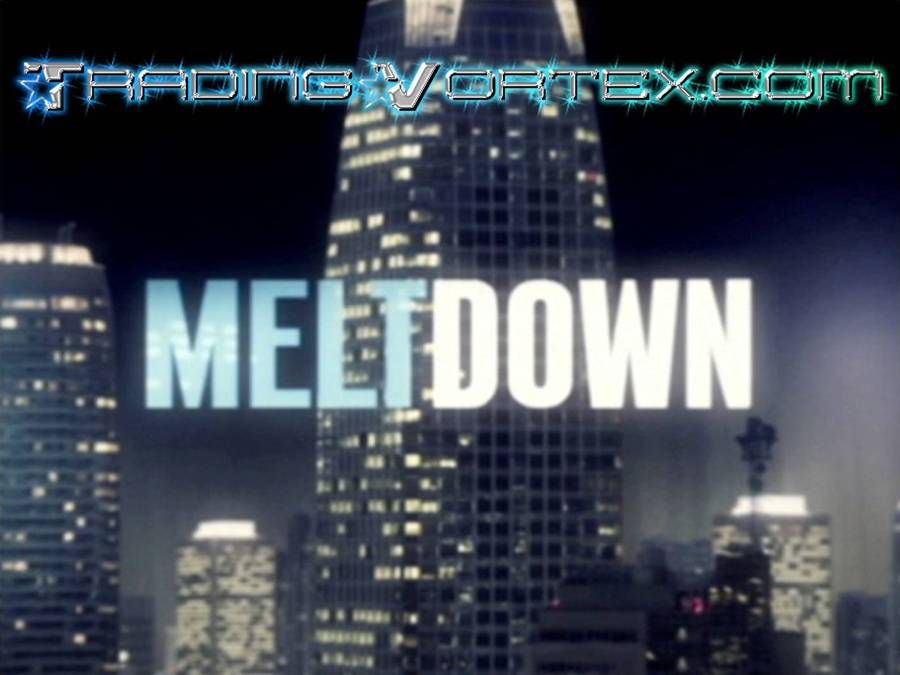

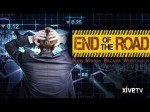
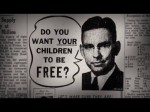
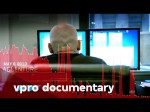
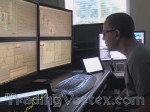

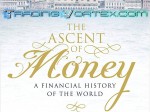
 TradingVortex.com® 2019 © All Rights Reserved.
TradingVortex.com® 2019 © All Rights Reserved.